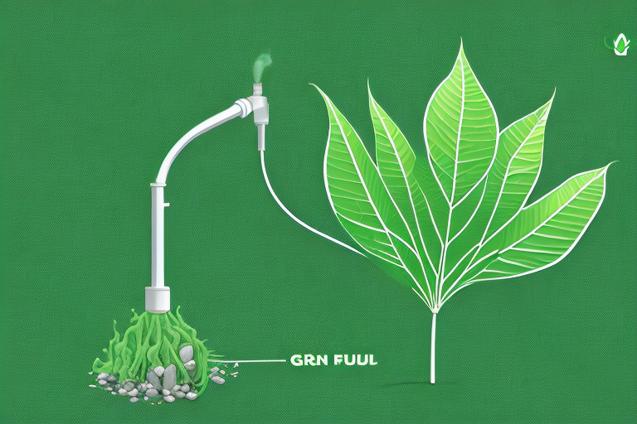
Discover the impact of biofuels on the environment and why choosing sustainable fuel options is crucial for a more environmentally friendly sailing experience.
The Impact of Biofuels on the Environment
As more and more people are choosing to leave the rat race behind and embark on a sailing adventure with their families, it’s essential to consider the environmental impact of our choices. One of the most significant decisions we can make as sailors is the type of fuel we use to power our boats. In this article, we will explore the impact of biofuels on the environment and discuss the benefits and drawbacks of using them as a clean energy option for boats.
What are Biofuels?
Biofuels are a type of renewable energy source derived from organic materials, such as plants and animal waste. They can be used as an alternative to fossil fuels, which are non-renewable and contribute to greenhouse gas emissions and climate change. There are two main types of biofuels: bioethanol and biodiesel.
Bioethanol
Bioethanol is an alcohol-based fuel made by fermenting and distilling sugars from plants, such as corn, sugarcane, and wheat. It can be used as a fuel additive or as a standalone fuel in specially designed engines. Bioethanol is most commonly used in a blend with gasoline, known as E10 (10% ethanol, 90% gasoline), but it can also be used in higher concentrations, such as E85 (85% ethanol, 15% gasoline).
Biodiesel
Biodiesel is a fuel made from vegetable oils, animal fats, or recycled cooking grease. It can be used as a direct replacement for petroleum diesel in most diesel engines, without any modifications. Biodiesel is typically blended with petroleum diesel in various concentrations, such as B5 (5% biodiesel, 95% petroleum diesel) or B20 (20% biodiesel, 80% petroleum diesel).
Environmental Benefits of Biofuels
There are several environmental benefits to using biofuels as a clean energy option for boats. Some of the most significant advantages include:
Reduced Greenhouse Gas Emissions
One of the main benefits of using biofuels is their potential to reduce greenhouse gas emissions. When plants grow, they absorb carbon dioxide (CO2) from the atmosphere through photosynthesis. When biofuels are burned, they release the same amount of CO2 back into the atmosphere, creating a closed carbon cycle. This means that, in theory, biofuels can be considered carbon-neutral.
However, it’s essential to consider the entire lifecycle of biofuels, including the energy used to grow, harvest, and process the feedstock, as well as the transportation and distribution of the fuel. When these factors are taken into account, biofuels still generally produce fewer greenhouse gas emissions than fossil fuels, but the exact reduction varies depending on the type of biofuel and the production process.
Reduced Air Pollution
Biofuels can also help reduce air pollution, as they typically produce fewer harmful emissions than fossil fuels. For example, biodiesel produces less particulate matter, carbon monoxide, and sulfur dioxide than petroleum diesel. Similarly, bioethanol produces fewer volatile organic compounds (VOCs) and nitrogen oxides (NOx) than gasoline.
Renewable and Sustainable
Biofuels are a renewable energy source, as they are derived from organic materials that can be regrown and replenished over time. This makes them a more sustainable option than fossil fuels, which are finite and take millions of years to form. By using biofuels, we can reduce our reliance on non-renewable resources and promote a more sustainable energy future.
Environmental Drawbacks of Biofuels
While biofuels offer several environmental benefits, there are also some potential drawbacks to consider. Some of the main concerns include:
Land Use and Deforestation
The production of biofuels requires large amounts of land to grow the feedstock, which can lead to deforestation and habitat loss. In some cases, the conversion of natural ecosystems to agricultural land for biofuel production can result in more greenhouse gas emissions than the biofuels can offset. This is particularly concerning in regions with high biodiversity and carbon-rich ecosystems, such as tropical rainforests.
Food vs. Fuel Debate
The use of food crops, such as corn and sugarcane, for biofuel production has raised concerns about the potential impact on food prices and availability. As more land is dedicated to growing biofuel feedstock, there may be less land available for food production, which could lead to increased food prices and food insecurity in some regions.
Water Use and Pollution
Biofuel production can also have significant impacts on water resources. Growing feedstock requires large amounts of water, which can strain local water supplies and contribute to water scarcity in some regions. Additionally, the use of fertilizers and pesticides in feedstock production can lead to water pollution and the degradation of aquatic ecosystems.
Clean Energy Options for Boats: The Verdict on Biofuels
While biofuels offer several environmental benefits, such as reduced greenhouse gas emissions and air pollution, there are also some significant drawbacks to consider. To minimize the environmental impact of biofuels, it’s essential to choose sustainably produced biofuels that do not contribute to deforestation, food insecurity, or water pollution.
As sailors, we have a responsibility to protect the environment and preserve the oceans for future generations. By carefully considering our fuel choices and opting for clean energy options, we can reduce our environmental footprint and contribute to a more sustainable future.
In addition to biofuels, there are other clean energy options for boats to consider, such as solar panels, wind generators, and hydro generators. By combining these technologies and using biofuels responsibly, we can create a more sustainable and environmentally friendly sailing experience.